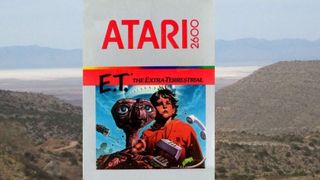Lost and found: great bits of tech we thought were lost forever
There are some things that a system restore can't bring back...

IT techs have a saying: you can never have too many hats, gloves, socks, or backups.
Sage advice, given that a couple of erroneous letters on a command line can wipe out hundreds of thousands of man-hours of work.
Things often work out in the end, though, so we've found some of the best examples of long-lost bits of tech that came through in the end.
Forgotten Bitcoins
Bitcoin was invented back in 2009, and for the first few years of its existence, it remained the preserve of drug dealers and the kind of people who frequent IRC. As a result, a couple thousand Bitcoins were only worth a few pounds, and people thought nothing of chucking away a hard drive with a sizeable wallet on it.
Fast forward a few years, though, and one Bitcoin is worth hundreds of pounds. Meaning those who chucked away their digital wallets were now missing sizeable amounts of money.
Who'd throw away even a few pounds of Bitcoins, you ask? Well a Mr James Howells did. He tossed a hard drive into the rubbish, complete with the only access to 7,500 Bitcoins, now worth a cool few million in cold, hard cash.

As any sane person would do, Howells spent a few months scouring the landfill thought to contain the hard drive, and even tried an Indiegogo campaign to help find the elusive treasure, but it all ultimately came to nought.
Get daily insight, inspiration and deals in your inbox
Get the hottest deals available in your inbox plus news, reviews, opinion, analysis and more from the TechRadar team.
On a much larger scale, Mt Gox, the home of the world's biggest crypto currency exchange managed to misplace a couple of Bitcoins, worth between £300-700 each depending on the day of the week.
Luckily it found 200,000 of missing coins a, hidden in old-format wallets that had simply been forgotten about. Imagine finding £50 million down the back of the sofa!
Unfortunately that is only a fraction of Mt Gox's missing Bitcoins, thought to be around 850,000 with an estimated value of $450 million.
The World's Worst Game
In 1982, the long-awaited video-game spinoff of E.T. was launched by Atari. As is often the case with game spinoffs from Hollywood, the game bombed, being labeled "the worst game ever" (which, in fairness, wasn't such a big deal back in 1982).

Out of shame, Atari filled a landfill in New Mexico, since they couldn't even discount-bin the games. Roughly 750,000 copies were dumped and poured with concrete, where Atari presumably hoped no one would ever find them.
Twenty years later, Microsoft had different thoughts, and, with a film crew on hand, dug up Atari's skeletons for a documentary being made for the budding Xbox video series, tentatively titled Atari: Game Over. I imagine that unlike wine, E.T. didn't improve with age.
How Not to Use Linux
Anyone who's ever suffered an unexpected Blue Screen of Death knows what it's like to lose a fully formed project - but Pixar's misfortune takes first place.
During the making of Toy Story 2 a mystery person entered the fateful code '/bin/rm -r -f *'. Thanks to the efficiency of Linux, this made all of the project files of Toy Story 2 (hundreds of thousands of hours of rendering, art, and lighting) disappear in the virtual bin, never to be seen again.
To make things worse, the backups turned out to be useless. The developers had to resort to cobbling together a backup off individual users' machines; combined with a version someone had taken home to work on.
In the end, it took a week of all-nighters, comparing every frame and asset by eye to see if they were good, to be re-written. The team did get everything re-assembled, just in time for the Pixar high-ups to decide the film needed a re-write. Sometimes, luck just doesn't go your way.
Most Popular


